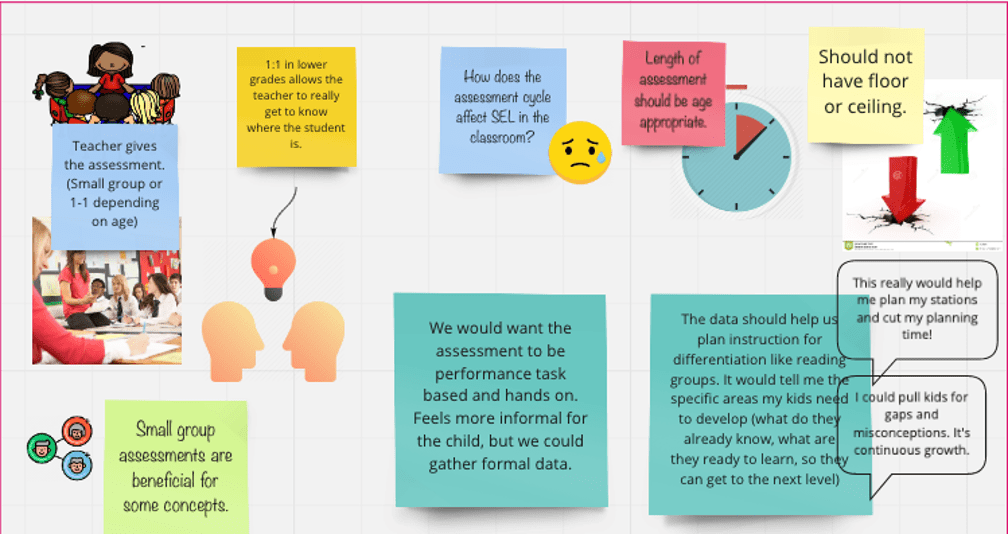RME researchers convened two work sessions in July with ten Dallas-Fort Worth area teachers to learn more about their formative assessment needs with their kindergarten through second grade students. These teachers’ experiences and perspectives provide important insights for the MMaRS research project, from which researchers will create formative assessments of numeric relational reasoning and spatial reasoning. The Teacher Advisory Panel, also knowns as TAP, provides ongoing support to the RME research team to ensure the results of the assessments the researchers are building will be useful to guide teacher’s instructional decision making and support student learning of these constructs.

During the first session, the teachers participated in focus group discussions with the research team to share their insights, understanding, and reactions to the concept of learning progressions. (Learning progressions will form the basis of the formative assessments.) Next, teachers collaborated with the research team on a virtual design charette exercise, where rotating groups of teachers designed their ideal testing scenarios based on their classroom experiences, including wants and needs. A snapshot of one group’s design is shown in the picture above. The RME research team will use the information from the TAP workshop sessions—as well as multiple other sources of data—to build the instructional tools and formative assessment items for the MMaRS project.


